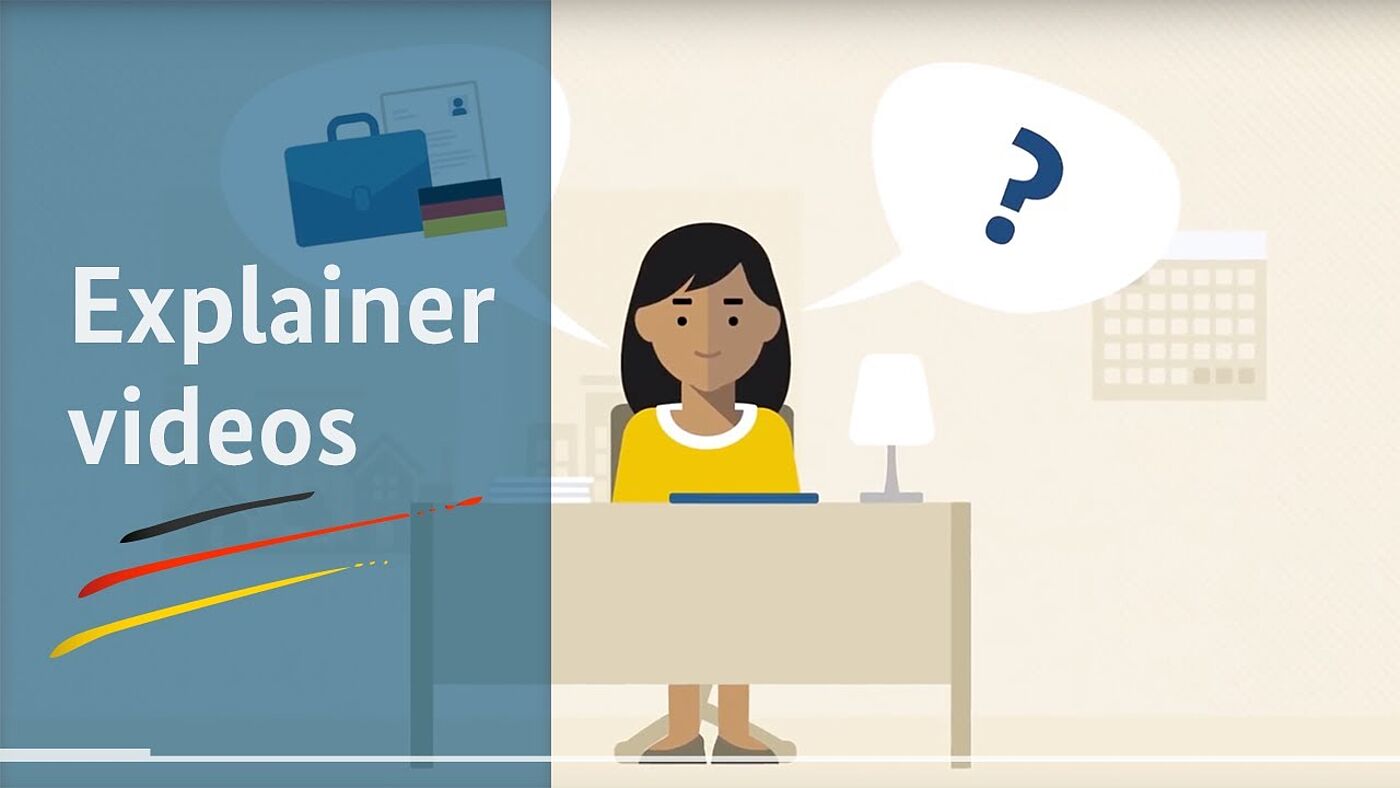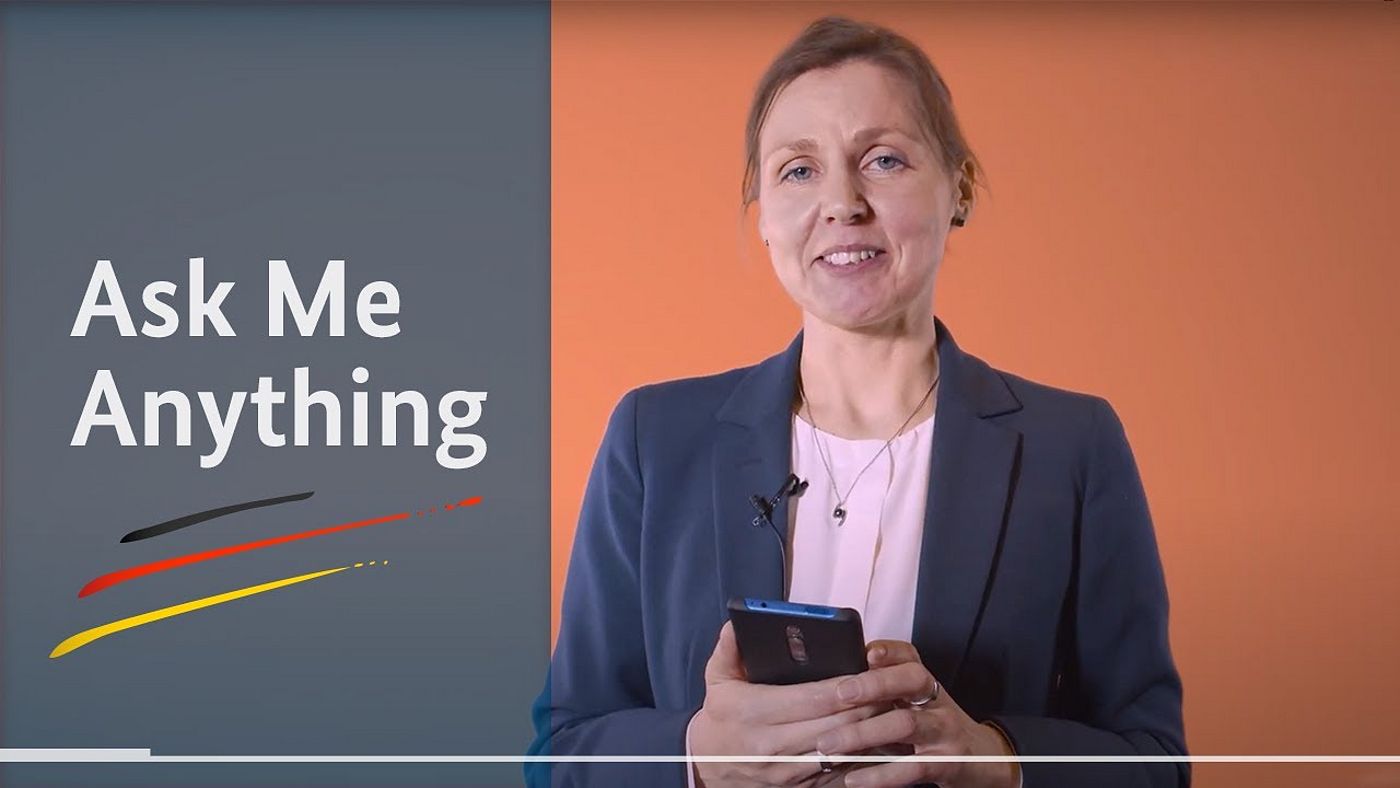
How to get started: your pathway to Germany
Are you thinking about working as an IT specialist in Germany? We will help you with some answers to your questions!
1. What are my chances in the German job market as a skilled IT worker?
Your chances in the German job market as a qualified IT worker are excellent. German companies are increasingly turning to other countries in the search for skilled IT professionals. In 2023, around 149,000 posts for IT specialists remained unfilled. Your job prospects are particularly good if you have extensive professional experience and expertise. Here we feature some attractive areas of work in the IT sector for you.
2. Do I need to speak German in order to work in Germany's IT sector?
Your company's working language is the determining factor in whether you will speak German or English in your future job. In the German IT sector, it is common for English to be spoken in the work environment. This is also frequently the case in smaller enterprises and start-up companies. The more diverse and international the team, the more important English becomes as the common language of choice.
Nevertheless, you will need some knowledge of German in order to live in Germany. Whether you are dealing with official matters, browsing the supermarket, visiting your local sports field or chatting with neighbours, you will be surrounded by the German language every day. So make sure you take advantage of one of the many opportunities to learn German.
3. What advantages does Germany offer me as a skilled IT worker?
With a job in Germany, you enjoy many rights in your capacity as an employee: for instance, you are automatically medically insured as an employee, so there is no need to pay extra for health insurance. Your partner and children are included in the insurance. In the same way, you are covered in case of illness as your salary will continue to be paid even if you are unable to work for a while.
A note about salaries: skilled IT workers in Germany can also expect to earn above-average starting salaries. There are often other benefits on top of your salary, such as a fixed Christmas bonus, holiday pay or special bonuses.
All work and no play? That is not the case in Germany. The business week usually runs from Monday to Friday and the average working time is 40 hours a week. Furthermore, every employee in Germany is entitled to at least 20 days of statutory paid holiday a year. This figure is considerably higher in most sectors of the economy: a minimum of 28 days of paid holiday is not unusual, even for entrants.
Generally speaking, great importance is placed on a healthy work-life balance in Germany. More and more companies offer their staff flexible working hours, exercise breaks and childcare.
4. How can I find a job in Germany's IT sector?
Are you looking for companies that specifically welcome applications from international skilled workers? If so, the "Make it in Germany" job listings are the right place for you. Here you will find numerous vacant jobs in the IT industry. You can also refine your search by filtering concrete job descriptions or locations.
In addition, you will find many other major job portals online, which you can use for your research. By way of example, you could enter the words “IT jobs in Germany” into your search engine.
You may already have a specific company in mind. Take the time to visit the websites of businesses in which you are interested, whether they are large international enterprises, or small and medium-sized ones. You will usually find the job advertisements in the "Careers" or "Jobs" sections.
It is also worthwhile to be represented by an informative profile in business networks. This allows you to be proactive in applying for jobs and to digitally refer to your employment history. You may also be "discovered" by companies here.
Do you need advice on job search? Contact the experts of the "Working and Living in Germany" hotline by email or telephone, or use the chat facility.
5. How do I successfully apply to a German IT company?
Do not hesitate to apply if you find an interesting job vacancy that matches your qualifications!
You generally need to submit the documents in German, although some companies will specifically ask for applications in English. It is therefore best to ask beforehand in which language your application should be submitted. In Germany, a complete job application usually consists of a cover letter, a CV in tabular form and your references. Make sure that your letter gives a clear and concise explanation of why you are interested in the job and the company, what skills you can bring and why you are the perfect candidate.
Bear in mind that the application documents are your business card and an opportunity to make a good first impression! German companies really appreciate the individual effort that goes into a professional-looking application.
Moreover, it is still common practice to add a photo to your CV when applying for jobs in Germany, although it is not obligatory. Make sure to show your competent and friendly side, preferably with a professional portrait. Any more questions? We briefly summarised all the key points for you in our explanatory video on job applications.
If your preferred company is impressed by your application, you will usually be invited to an interview. The employer will want to gain a personal impression of you – but you will also be able to ask questions, for example about your future position, the company or the corporate culture. These interviews can also be held via video chat or over the telephone.
Explainer video: How do I successfully apply in Germany?

6. Do I need a visa in order to work as an IT expert in Germany?
It primarily depends on your nationality whether you require a visa for Germany.
Citizens from the European Union, Liechtenstein, Norway and Switzerland have unrestricted access to the German labour market. If you come from any of those countries, you do not need a visa or residence permit to enter the country or to be employed in the IT sector.
If you are not from any of the aforementioned countries, you will need a visa or a residence permit in order to live and work in Germany. But no need to fret: you are the kind of person for whom there are special ways of obtaining a visa for Germany.
7. What are my options for obtaining a visa for Germany?
Attractive ways of obtaining a visa to work in Germany have been created for IT experts outside the European Union (so-called "third countries").
If you are an IT graduate with a specific job offer, you may obtain the EU Blue Card. This is a particularly popular residence permit that comes with many advantages. You can then apply for a permanent residence permit in Germany in less than three years. You may qualify for other types of visas as an IT specialist, such as the work visa for qualified professionals for the purpose of employment. You can also obtain it if you have acquired your IT skills through vocational training.
Do you have no formal vocational qualification or university degree, but you do have enthusiasm and proven expertise in the field you work in? If so, your professional experience may be sufficient for you to obtain a visa to work as a skilled IT worker in Germany.
Irrespective of which residence permit you need to apply for, please note that a concrete job offer is the most important requirement and the first step towards your IT career in Germany. You can find out more about the visa process here.
8. Can I bring my family to Germany?
Did you find a new job in the IT sector in Germany? If so, you can bring your spouse and your children with you to your new home country. Depending on which residence permit you have, different requirements may apply. We explain how it all works here. In any event, your life partner has the unrestricted right to immediately pursue gainful employment in Germany. So it's a good opportunity to embark on a career in Germany together.
Additionally, Germany offers lots of benefits for families. A high quality of life, a good education system free of charge, a dense network of schools and universities, and nationwide medical care make it a family-friendly place to live in. Germany also places great importance on balancing your job and family life.
Marina, an IT project manager from Russia, explains how she combines work and family life

